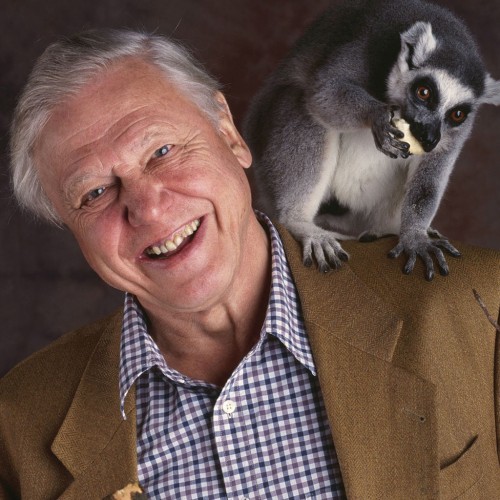As the world's most famous and esteemed naturalist, Sir David Attenborough has brought landmark wildlife to television screens for more than half a century. From Life on Earth to his latest, Attenborough and the Giant Dinosaur, his accessible exploration and storytelling has inspired generations to learn more about the natural world. Life on Earth has been seen by an estimated 500 million people.
Born in 1926, his curiosity for the natural world began early: seven-year-old David had already created his very own “museum” of bird eggs, old stamps and ancient fossils. He studied natural sciences at Cambridge, then joined the Royal Navy to see the world — but didn’t get much farther than an aircraft carrier stationed in the Firth of Forth.
His career at the BBC began in 1952, and led soon to the popular Zoo Quest series. Not many realize that David writes his own scripts — and he won a major literary prize in Britain for The Life of Birds before the television series had even been screened. He has collected 31 honorary degrees (more than any other person in Britain) and has had nearly a dozen species named after him, from carnivorous plants to dinosaurs.
Surely one of the world’s most frequent fliers, David traveled economy class, only accepting upgrades if they are extended to his crew as well — although when he reached the age of 75, the BBC told him he should fly business class in the future. He has been attacked by army ants in Africa, abseiled down a rainforest tree in his late 60’s, and seems to be the oldest person to set foot on the North Pole.
David's favorite animal? A two-year old human child. His least favorite? Rats!


